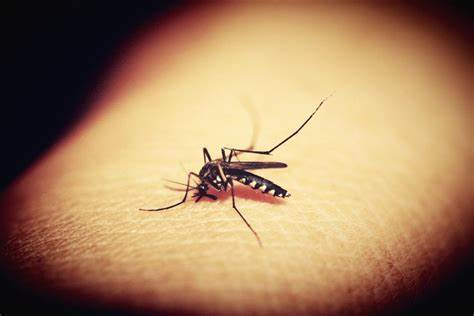Warming temperature and climate change are helping Dengue to spread its base to Europe and United States of America. Top scientist at the World Health Organization (WHO) has warned that the changing climate is causing a big increase in dengue, a dangerous disease spread by mosquitoes that kills many people each year. The scientist is telling health authorities around the world to get ready to fight this disease.

Around 20,000 people die from dengue fever every year, mostly in places like Asia and South America. It's a disease where, on average, one person dies for every 100 who get sick.
By October 2023, more than 4.2 million cases and over 3,000 deaths from dengue have been reported in 79 different countries and territories worldwide, according to information from the European Centre for Disease Prevention and Control.
Countries such as India, Brazil, Peru, Bangladesh, Bolivia, Argentina, Mexico, Philippines, Nicaragua, and Colombia have the most cases.
The WHO's chief scientist, Sir Jeremy Farrar, said that rising temperatures are helping the mosquitoes that carry this disease move into new areas like the US, Europe, and even parts of Africa, reports said.
1,200 cases in US every year
In the US, about 1,200 cases are reported every year, with almost 600 from local infections. Recently, California saw its first local infection in ten years.
Experts worry that if mosquitoes in Mexico that carry the disease move further north, dengue might become common in the US.
Professor Sir Peter Horby, from Oxford University, explained, "Dengue, a disease usually found in South America and Southeast Asia, is now moving north. In places like the Mediterranean, the disease is spreading." He has warned that climate change will result in the infectious disease dengue becoming endemic in parts of Europe and the United States, in an opening interview at the POLITICO health Summit.
Reports mention that infected travellers could bring the virus to new places if they get bitten by local mosquitoes, which then pass on the disease to other people. This is why it's crucial for health authorities to get ready.Back in April, WHO warned that changes in the climate might cause big outbreaks of diseases spread by mosquitoes, like dengue, Zika, and Chikungunya.
Cases of diseases caused by viruses spread by mosquitoes have increased a lot worldwide in recent years. The WHO estimate shows that about half of the people in the world are at risk of dengue, with between 100 to 400 million people getting sick every year.
Dr. Raman Velayudhan from WHO said it's really important now to talk more about the danger of these viruses globally. He mentioned that more people moving from place to place, cities getting bigger, and problems with water and cleanliness are helping the mosquitoes spread to new areas.
Dr. Velayudhan added that the viruses and mosquitoes like warm weather with lots of rain and humidity. This means they can grow and spread much faster in higher temperatures.
It's clear that health authorities worldwide need to get ready and act fast to deal with the growing threat of dengue and other diseases spread by mosquitoes because of changes in the climate.








